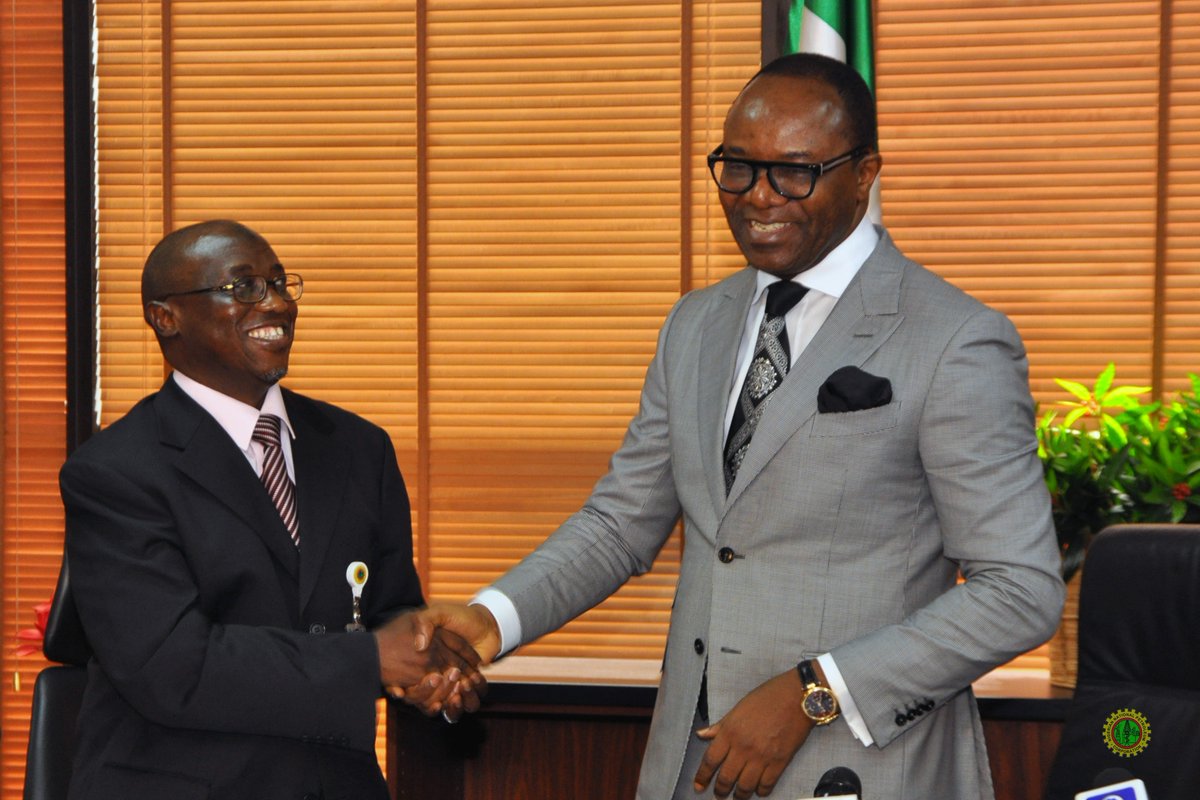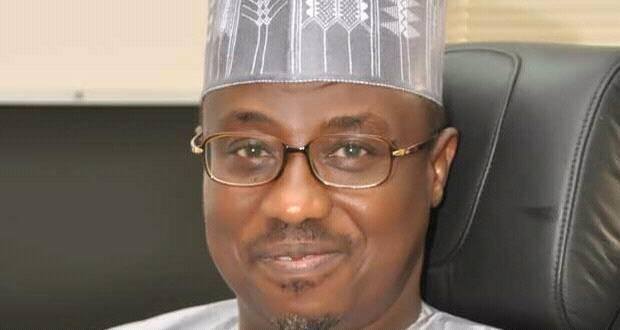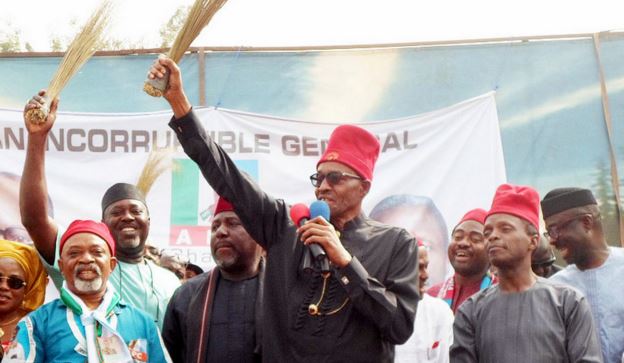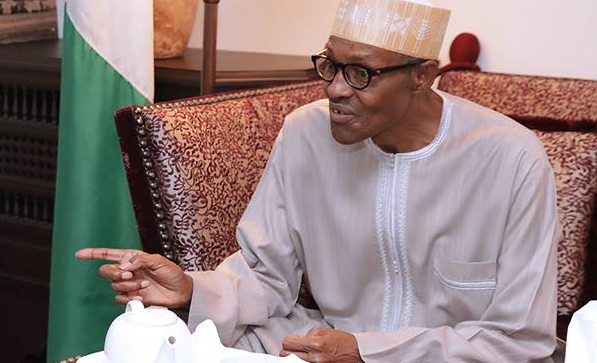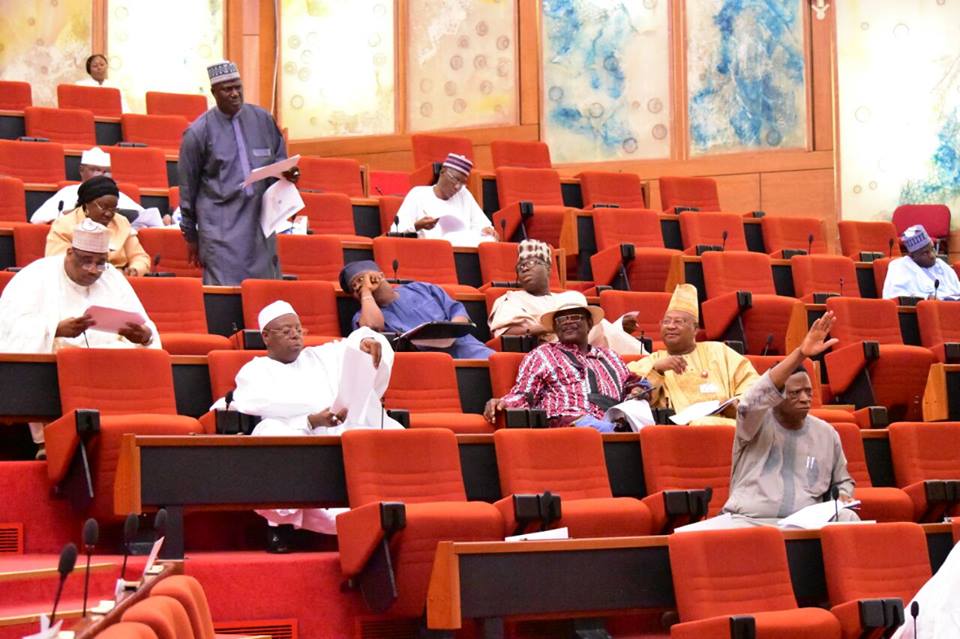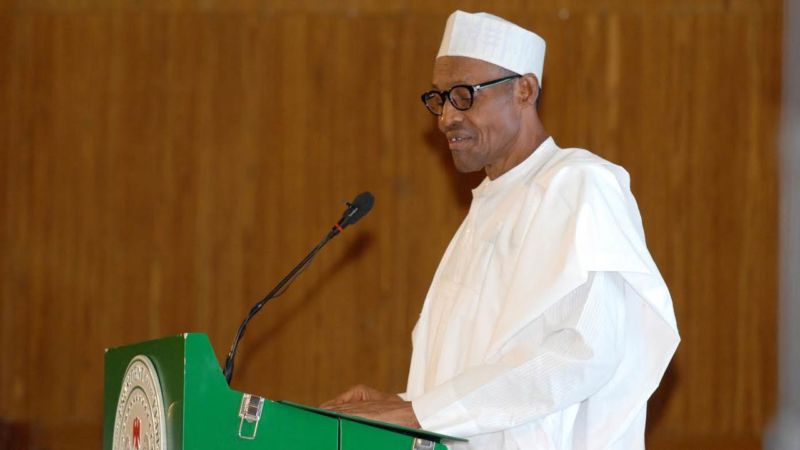If not for timely powerful interventions, the downstream division of the Nigerian oil industry would have boiled over. And this would have fuelled heated tension from the Nigerian masses already at a tipping point over the current hardship in the country.
Had the unrest come to be, it would have been a result of the obvious incongruity in the decision-making processes and relationships between the chief decision-makers in the Nigerian oil and gas industry – the minister of state for petroleum resources, Dr. Ibe Kachikwu and the group managing director (GMD) of the Nigerian National Petroleum Corporation (NNPC), Dr. Maikanti Baru.
Of course, President Muhammadu Buhari, being the substantive minister of petroleum resources, has the final say on the decisions of the aforementioned gentlemen who are appointees of his. But their failure to ensure mutual working relationship and inability to share a common ground on critical national issues in respect of the sector would definitely make mess of whatever authority the president holds or any idea the government has in improving the nation’s oil sector.
For long, a lot has been said about the opacity that exists in the operations of the sector; and the lack of accountability and professionalism on the side of its leadership which is said to be responsible for Nigeria’s inability to reap the incredible gains inherent in the sector for the good of the nation.
Advertisement
Meanwhile, the necessity to correct these anomalies and overhaul the industry had informed the decision of the new government to introduce some changes in the structure and the management of the sector at various levels.
Though Nigeria may have given in to fate on the vagueness of activities at the upstream division of the industry – where the exploration and production of Nigeria’s crude takes place and billions of dollars are pumped in crude and shared by the privileged few, the downstream is one division Nigerians are never ready to completely hand over to the dictate of fate.
That’s the reason the downstream is still a place where a commuter will direct his angst to when his daily fare is slightly increased. Even the pepper seller won’t hesitate to point accusing fingers in the same direction when the price of her goods rise. And much as the climate change crusaders are vigorously campaigning for clean and affordable energy, the majority of Nigerians who still cook with kerosene will know there is trouble in the downstream whenever there is a hike in the price of the product.
Advertisement
Therefore, it is imperative that authorities at that level work harmoniously in ensuring that there is peace at the downstream.
Because the discordant tunes that were put out weeks back by the minister of state for petroleum, Kachikwu and the NNPC, which Baru controls, can potentially throw the country in turmoil especially as the populace are actually enduring pains in paying for products from the downstream.
Following the announcement by the NNPC that it has increased the pump price of petrol at its retail outlets by N4 from N141 to N145, Kachikwu who was apparently caught unawares by the process taken by the NNPC in arriving at the decision couldn’t conceal his displeasure.
“First, I am not aware that the NNPC has increased price. I need to look into that. It is a bit of a surprise for me because there are processes for doing this. If they have done that, it means they are doing it wrongly. Let me find out what the facts are.
Advertisement
“Having said that, the reality is that what we did at the point where we did some liberalisation was to enable the free market float the price. Obviously, as you look at foreign exchange differentiations, it would impact. The worst thing you could do is to go back to an era where we basically were fixing prices.
“What we ought to be doing is watching the prices; making sure they are not taking advantage of the common man; making sure that the template is respected. One of the things I think we had hoped to do, which we should still do, before we embark on any price increase is to work on those templates,” the Minister said.
Above all, the understanding of the pains of the common man, and the decency that they are not to be taken advantage of should dictate the actions of the government in the sector. And this should help to foster better engagements and a united front within the decision-making levels of the industry.
After all, it was inferred that part of the reforms and the need to have competent hands at the helms of the agencies of the ministry that necessitated the appointment of a proven professional like Henry Ikem-Obih as the COO of NNPC, Downstream. And similar stride was stated to have been at work at the PPPRA amongst other attempts at advancing the industry.
Advertisement
So with these experts on hand, one would reason that there shouldn’t be any difficulty in forming unity of thought at the top management level and preventing issues that could have grave implications on the peace of the nation.
And one of the dangers of not managing decisions at the topmost hierarchy consciously and conscientiously is that it may not only incense the populace, the situation may equally be hijacked by another arm of government only to score a political point just as the House of Reps is presently calling for the downward review of the current price template of petroleum.
Advertisement
Views expressed by contributors are strictly personal and not of TheCable.
Add a comment

